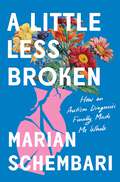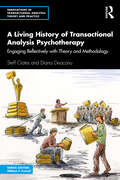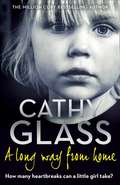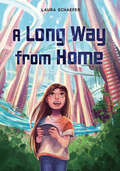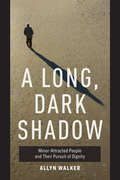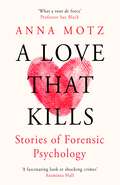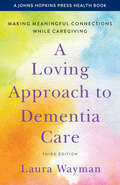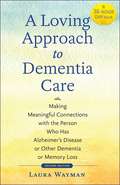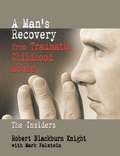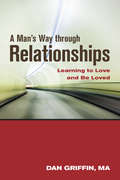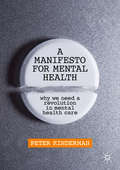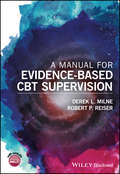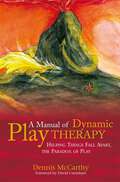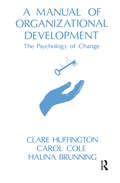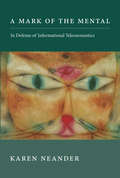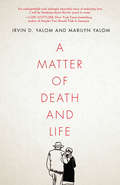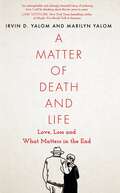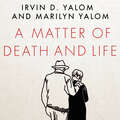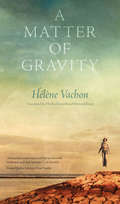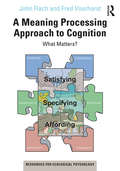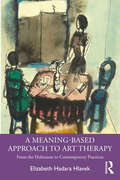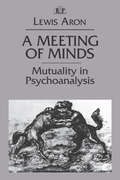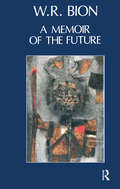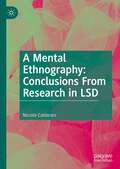- Table View
- List View
A Little Less Broken: How an Autism Diagnosis Finally Made Me Whole
by Marian Schembari“An inspiring memoir about coming home to who you are.” —People MagazineOne woman’s decades-long journey to a diagnosis of autism, and the barriers that keep too many neurodivergent people from knowing their true selvesMarian Schembari was thirty-four years old when she learned she was autistic. By then, she’d spent decades hiding her tics and shutting down in public, wondering why she couldn’t just act like everyone else. Therapists told her she had Tourette’s syndrome, obsessive-compulsive disorder, sensory processing disorder, social anxiety, and recurrent depression. They prescribed breathing techniques and gratitude journaling. Nothing helped.It wasn’t until years later that she finally learned the truth: she wasn’t weird or deficient or moody or sensitive or broken. She was autistic.Today, more people than ever are diagnosed with autism spectrum disorder. Testing improvements have made it easier to identify neurodivergence, especially among women and girls who spent decades dismissed by everyone from parents to doctors, and misled by gender-biased research. A diagnosis can end the cycle of shame and invisibility, but only if it can be found.In this deeply personal and researched memoir, Schembari’s journey takes her from the mountains of New Zealand to the tech offices of San Francisco, from her first love to her first child, all with unflinching honesty and good humor.A Little Less Broken breaks down the barriers that leave women in the dark about their own bodies, and reveals what it truly means to embrace our differences.
A Living History of Transactional Analysis Psychotherapy: Engaging Reflectively with Theory and Methodology (Innovations in Transactional Analysis: Theory and Practice)
by Steff Oates Diana DeaconuThis important book offers a comprehensive review of over 70 years of transactional analysis psychotherapy from within the field, considering its historical context and various applications, as well as how different aspects of the theory emerged and how they are applied.The book examines the structure of transactional analysis, taking readers on a journey from the inception of the method to present-day applications of the theory. The authors raise questions around the way the theory may be taught as doctrine and ask readers to consider how new aspects of theory are fully integrated into the already existing schema. The authors also highlight the zeitgeist within which TA was developed and offer reflections as to how further developments are also part of a particular spirit and mood of the times in which they were developed.A Living History of Transactional Analysis Psychotherapy offers coherence between different aspects of TA theory and when, where, and why they are used, making it important reading for TA scholars, students, and practitioners.
A Long Way from Home
by Cathy GlassThe true story of 2 year-old Anna, abandoned by her natural parents, left alone in a neglected orphanage. Elaine and Ian had travelled half way round the world to adopt little Anna. She couldn’t have been more wanted, loved and cherished. So why was she now in foster care and living with me? It didn’t make sense. Until I learned what had happened. … Dressed only in nappies and ragged T-shirts the children were incarcerated in their cots. Their large eyes stared out blankly from emaciated faces. Some were obviously disabled, others not, but all were badly undernourished. Flies circled around the broken ceiling fans and buzzed against the grids covering the windows. The only toys were a few balls and a handful of building bricks, but no child played with them. The silence was deafening and unnatural. Not one of the thirty or so infants cried, let alone spoke.
A Long Way from Home
by Laura SchaeferTwelve-year-old Abby has a lot to worry about: Climate change. The news. The Great Pacific Garbage Patch. And now moving to Florida for her mom's new job at an aerospace company. On the Space Coast, Abby meets two boys, Adam and Bix, who tell her they're "a long way from home" and need her help. Abby discovers they're from the future, from a time when all the problems of the 21st century have been solved. Thrilled, Abby strikes a deal with them: She'll help them—if they let her come to the future with them. But soon Abby is forced to question her attachment to a perfect future and her complicated feelings about the present.
A Long, Dark Shadow: Minor-Attracted People and Their Pursuit of Dignity
by Allyn WalkerChallenging widespread assumptions that persons who are preferentially attracted to minors—often referred to as "pedophiles"—are necessarily also predators and sex offenders, this book takes readers into the lives of non-offending minor-attracted persons (MAPs). There is little research into non-offending MAPs, a group whose experiences offer valuable insights into the prevention of child abuse. Navigating guilt, shame, and fear, this universally maligned group demonstrates remarkable resilience and commitment to living without offending and to supporting and educating others. Using data from interview-based research, A Long, Dark Shadow offers a crucial account of the lived experiences of this hidden population.
A Love That Kills: Stories of Forensic Psychology and Female Violence
by Anna MotzFemale violence is a truth too uncomfortable for most to consider. We treat those who kill, abuse and commit terrible acts as outcasts - they are monsters, angels of death, manifestations of pure evil and a threat to the ideals of womanhood.In reality, the truth can be much more complex. Many women who commit acts of violence have been subjected to shocking abuse themselves. Some are suffering from serious mental illness or psychological harm. For many, the desperate search for the care they have been denied their whole lives leads them to repeat the same brutality they once suffered. Women like this are not the inhuman monsters of tabloid myth, but victims and proponents of abuse motivated by the most human instinct of all: to love and be loved.Introducing us to eleven ordinary women who came to commit extreme acts, Anna Motz - one of Britain's leading forensic psychotherapists who has spent three decades working with violent women - takes us on a journey into psychotherapy, uncovering their motives and the fault lines in their psyche that led to their crimes. We meet Mary, who turned to arson after her son was taken into care, Maja, whose fantasy life led to her stalking an ex-boyfriend, and Dolores, whose terrible crime is unimaginable to most people. Deeply affecting, compelling and profound, A Love That Kills offers a rare insight into the sometimes perilous dance between therapist and patient and the often tortuous pathways to recovery, asking vital questions about how society treats violent women.
A Loving Approach to Dementia Care: Making Meaningful Connections while Caregiving (A Johns Hopkins Press Health Book)
by Laura WaymanAn encouraging and compassionate guide for dementia caregivers.Caring for someone with dementia means devotedly and patiently doing a hundred little things each day. But few care providers are trained to meet the challenges of dementia—despite the fact that millions of people will struggle with it as they grow older. In A Loving Approach to Dementia Care, Laura Wayman, who is known professionally as the Dementia Whisperer, offers practical, compassionate advice on overcoming caregiving obstacles and maintaining meaningful relationships with loved ones who have dementia and memory loss. In this thoroughly revised third edition, Wayman includes • answers to common caregiver questions, such as "What is dementia?"• a detailed explanation of how to cope with and care for a spouse with dementia symptoms, including advice about communication • a new chapter on caring for someone who has dementia along with other health problems• recommendations about how to handle challenging situations and behaviors• dementia-aware activities that work for both family caregivers and professional care staff• fresh caregiving insights that emphasize the importance of taking time to care for oneselfEach chapter contains two sections—"Lessons Learned" and "Perceptions and Approaches"—which provide details about how readers can apply lessons from the stories Wayman tells to their own caregiving practice. Providing support for the numerous difficulties and disruptions that all caregivers face along the way, A Loving Approach to Dementia Care is an empathetic guide filled with respect, calm, and creativity. It will leave readers feeling empowered and inspired.
A Loving Approach to Dementia Care: Making Meaningful Connections with the Person Who has Alzheimer's Disease or Other Dementia or Memory Loss (A 36-hour Day Book)
by Laura WaymanBack Cover: "A Loving Approach to Dementia Care offers compassionate advice on overcoming practical and emotional obstacles to maintaining meaningful relationships with loved ones who have dementia and memory loss. Laura Wayman's program of care emphasizes communication, affirmative response, and empowerment--transforming the caregiving process from a burden into a fulfilling journey. Her true stories of caregiving illustrate the principles of this loving approach, giving readers essential tools for connecting with people who have dementia. In this thoroughly revised edition, dementia care consultant Wayman adds fresh caregiving insights and new information about the dangers of denying the onset of cognitive problems. Also new to this edition is Wayman's ‘Dementia-Aware Guide to Caregiving’--a quick reference tool for advice on how to respond to specific difficult behaviors."
A Man's Recovery from Traumatic Childhood Abuse: The Insiders
by Robert Blackburn Knight Mark FalsteinFirst published in 2002. Routledge is an imprint of Taylor & Francis, an informa company.
A Man's Way through Relationships
by Dan GriffinAn essential guide that centers on three core areas of men's relationships: self, others, and higher power/God, and offers readers the opportunity to complete exercises pertaining to each area.Dan Griffin, MA, is the author of A Man's Way through the Twelve Steps and co-author of Helping Men Recover. With two decades of experience in the mental health and addiction field, he is an international speaker and trainer and leads men's retreats throughout the country for treatment programs and in the twelve-step community.
A Manifesto for Mental Health: Why We Need a Revolution in Mental Health Care
by Peter KindermanA Manifesto for Mental Health presents a radically new and distinctive outlook that critically examines the dominant ‘disease-model’ of mental health care. Incorporating the latest findings from both biological neuroscience and research into the social determinants of psychological problems, Peter Kinderman offers a contemporary, biopsychosocial, alternative. He warns that the way we care for people with mental health problems is creating a hidden human rights emergency and he proposes a new vision for the future of health organisations across the globe. The book highlights persuasive evidence that our mental health and wellbeing depend largely on the society in which we live, on the things happen to us, and on how we learn to make sense of and respond to those events. Kinderman proposes a rejection of invalid diagnostic labels, practical help rather than medication, and a recognition that distress is usually an understandable human response to life's challenges. Offering a serious critique of establishment thinking, A Manifesto for Mental Health provides a well-crafted demonstration of how, with scientific rigour and empathy, a revolution in mental health care is not only highly desirable, it is also entirely achievable.
A Manual for Evidence-Based CBT Supervision
by Derek L. Milne Robert P. ReiserThe effectiveness of CBT depends on the quality of supervision and training that is provided to its practitioners. This manual is intended to significantly strengthen the available resources for training CBT supervisors (primarily) working within clinical services in the mental health field. The manual and its associated content are structured in user-friendly modules, designed to support multiple potential training functions including the initial credentialing and certification of supervisors, providing training to individual supervisors in a continuing education/professional development format, assisting in a ‘train the trainer’ approach, and distance learning. The authors drew on the insights of many accredited CBT supervisors to develop the guidance, and the work is built firmly on an evidence-based approach.
A Manual of Dynamic Play Therapy: Helping Things Fall Apart, the Paradox of Play
by Dennis Mccarthy David CrenshawChildren will experience natural growth and change throughout their lives. Play, by its very nature, always results in things falling apart, often literally, and children generally find satisfaction in this process of collapse and renewal. This book harnesses the power of the reorganizing process to elicit positive and profound change in children dealing with social, neurological, developmental, health and family issues. The author clarifies the theory behind this innovative play therapy approach, and explains its practical application to a full spectrum of client needs, using inspirational, real-life anecdotes as examples. He also describes the importance of using symbols in play therapy and focuses on ways to enable children to act out their internal aggression in a safe and healthy manner. This will be essential reading for play therapists and other professionals working therapeutically with children and their families.
A Manual of Organizational Development: The Psychology of Change
by Clare HuffingtonA practical guide to the essentials of organisational change which makes complex concepts accessible to managers, consultants, human resources professionals and others. Includes a directory of further sources of information and assistance.
A Mark of the Mental: In Defense of Informational Teleosemantics (Life and Mind: Philosophical Issues in Biology and Psychology)
by Karen NeanderDrawing on insights from causal theories of reference, teleosemantics, and state space semantics, a theory of naturalized mental representation.In A Mark of the Mental, Karen Neander considers the representational power of mental states—described by the cognitive scientist Zenon Pylyshyn as the “second hardest puzzle” of philosophy of mind (the first being consciousness). The puzzle at the heart of the book is sometimes called “the problem of mental content,” “Brentano's problem,” or “the problem of intentionality.” Its motivating mystery is how neurobiological states can have semantic properties such as meaning or reference. Neander proposes a naturalistic account for sensory-perceptual (nonconceptual) representations. Neander draws on insights from state-space semantics (which appeals to relations of second-order similarity between representing and represented domains), causal theories of reference (which claim the reference relation is a causal one), and teleosemantic theories (which claim that semantic norms, at their simplest, depend on functional norms). She proposes and defends an intuitive, theoretically well-motivated but highly controversial thesis: sensory-perceptual systems have the function to produce inner state changes that are the analogs of as well as caused by their referents. Neander shows that the three main elements—functions, causal-information relations, and relations of second-order similarity—complement rather than conflict with each other. After developing an argument for teleosemantics by examining the nature of explanation in the mind and brain sciences, she develops a theory of mental content and defends it against six main content-determinacy challenges to a naturalized semantics.
A Matter of Death and Life
by Irvin D. Yalom Marilyn YalomA year-long journey by the renowned psychiatrist and his writer wife after her terminal diagnosis, as they reflect on how to love and live without regret. Internationally acclaimed psychiatrist and author Irvin Yalom devoted his career to counseling those suffering from anxiety and grief. But never had he faced the need to counsel himself until his wife, esteemed feminist author Marilyn Yalom, was diagnosed with cancer. In A Matter of Death and Life, Marilyn and Irv share how they took on profound new struggles: Marilyn to die a good death, Irv to live on without her. In alternating accounts of their last months together and Irv's first months alone, they offer us a rare window into facing mortality and coping with the loss of one's beloved. The Yaloms had numerous blessings—a loving family, a Palo Alto home under a magnificent valley oak, a large circle of friends, avid readers around the world, and a long, fulfilling marriage—but they faced death as we all do. With the wisdom of those who have thought deeply, and the familiar warmth of teenage sweethearts who've grown up together, they investigate universal questions of intimacy, love, and grief. Informed by two lifetimes of experience, A Matter of Death and Life is an openhearted offering to anyone seeking support, solace, and a meaningful life.
A Matter of Death and Life: Love, Loss and What Matters in the End
by Irvin Yalom Marilyn Yalom'Wise, beautiful, heartbreaking, raw' The Times'A beacon of hope to all of us who will be bereaved' Kathryn Mannix'An unforgettable and achingly beautiful story of enduring love' Lori GottleibInternationally renowned psychiatrist and author Irvin Yalom has devoted his career to counselling those suffering from anxiety and grief. But never had he faced the need to counsel himself until his wife, esteemed feminist author Marilyn Yalom, was diagnosed with cancer. In A MATTER OF DEATH AND LIFE, Marilyn and Irvin share how they took on profound new struggles: Marilyn to die a good death, Irvin to live on without her.In alternating accounts of their last months together and Irvin's first months alone, they offer us a rare window into coping with death and the loss of one's beloved. The Yaloms had rare blessings - a loving family, a beautiful home, a large circle of friends, avid readers around the world, and a long, fulfilling marriage - but they faced death as we all do. With the candour and wisdom of those who have thought deeply and loved well, they investigate universal questions of intimacy, love, and grief.Informed by two lifetimes of experience, A MATTER OF DEATH AND LIFE offers poignant insights and solace to all those seeking to fight despair in the face of death, so that they can live meaningfully.
A Matter of Death and Life: Love, Loss and What Matters in the End (Language Acts and Worldmaking #27)
by Irvin Yalom Marilyn Yalom'Wise, beautiful, heartbreaking, raw' The Times'A beacon of hope to all of us who will be bereaved' Kathryn Mannix'An unforgettable and achingly beautiful story of enduring love' Lori GottleibInternationally renowned psychiatrist and author Irvin Yalom has devoted his career to counselling those suffering from anxiety and grief. But never had he faced the need to counsel himself until his wife, esteemed feminist author Marilyn Yalom, was diagnosed with cancer. In A MATTER OF DEATH AND LIFE, Marilyn and Irvin share how they took on profound new struggles: Marilyn to die a good death, Irvin to live on without her.In alternating accounts of their last months together and Irvin's first months alone, they offer us a rare window into coping with death and the loss of one's beloved. The Yaloms had rare blessings - a loving family, a beautiful home, a large circle of friends, avid readers around the world, and a long, fulfilling marriage - but they faced death as we all do. With the candour and wisdom of those who have thought deeply and loved well, they investigate universal questions of intimacy, love, and grief.Informed by two lifetimes of experience, A MATTER OF DEATH AND LIFE offers poignant insights and solace to all those seeking to fight despair in the face of death, so that they can live meaningfully.
A Matter of Gravity
by Howard Scott Phyllis Aronoff Hélène VachonA Matter of Gravity is a playful and touching treatment of illness and tragedy, in which an enigmatic manuscript brings together two disparate male characters. Black humor and compassion brilliantly illuminate their tragic encounter.Hélène Vachon is the author of two novels and more than twenty works of children's literature. Her books have been nominated for many prizes, including the Governor General's Literary Award and the Mr. Christie's Book Award.Howard Scott is a Montreal literary translator who specializes in the genres of fiction and nonfiction.Phyllis Aronoff is former president of the Literary Translators' Association of Canada.
A Meaning Processing Approach to Cognition: What Matters? (Resources for Ecological Psychology Series)
by John Flach Fred VoorhorstA cognitive psychologist and an industrial design engineer draw on their own experiences of cognition in the context of everyday life and work to explore how people attempt to find practical solutions for complex situations. The book approaches these issues by considering higher-order relations between humans and their ecologies such as satisfying, specifying, and affording. This approach is consistent with recent shifts in the worlds of technology and product design from the creation of physical objects to the creation of experiences. Featuring a wealth of bespoke illustrations throughout, A Meaning Processing Approach to Cognition bridges the gap between controlled laboratory experiments and real-world experience, by questioning the metaphysical foundations of cognitive science and suggesting alternative directions to provide better insights for design and engineering. An essential read for all students of Ecological Psychology or Cognitive Systems Design, this book takes the reader on a journey beyond the conventional dichotomy of mind and matter to explore what really matters.
A Meaning-Based Approach to Art Therapy: From the Holocaust to Contemporary Practices
by Elizabeth Hadara HlavekA Meaning-Based Approach to Art Therapy contextualizes the phenomena of Holocaust artwork for the field of art therapy and uses this canon of artwork to support the inclusion of logotherapy into art therapy theory and practice. The author expounds on a study in which she interviewed surviving Holocaust artists about how they were able to create their artworks while in Nazi captivity. Divided into three parts, the book follows the chronological order of her inquiry. It first presents theory, then research, and ends with implications for the practice of art therapy. The research chapters set out the process and results of the author's phenomenological inquiry. They address how art making during the Holocaust allowed captive artists to bear witness, leave a legacy and retain their humanity. In the final part, the author reveals how art therapists can use concepts from her study to support the progress of their clients. She advocates for the application of logotherapy, an existential philosophy that emphasizes finding meaning to facilitate healing and personal growth. Practicing art therapists and students of art therapy will find this book to be an excellent resource on logotherapy, an updated perspective on existentialism, and a contemporary examination of phenomenology.
A Measure of Success: The Influence of Curriculum-Based Measurement on Education
by Susan Rose Kristen L. McMaster Christine A. Espin Miya Miura WaymanSimple in concept, far-reaching in implementation, Curriculum-Based Measurement (CBM) was developed in the 1980s as an efficient way to assess the progress of struggling students, including those with disabilities. Today, there are few areas of special education policy and practice that have not been influenced by CBM progress monitoring. The impact of CBM is reflected in recent education reforms that emphasize improvements in assessment and data-based decision making. Gathering an international group of leading researchers and practitioners, A Measure of Success provides a comprehensive picture of the past, present, and possible future of CBM progress monitoring. The book will be instrumental for researchers and practitioners in both general and special education, particularly those involved in the rapidly growing Response to Intervention (RTI) approach, an approach used to determine the performance and placement of students with learning difficulties.A Measure of Success presents a nuanced examination of CBM progress monitoring in reading, math, and content-area learning to assess students at all levels, from early childhood to secondary school, and with a wide range of abilities, from high- and low-incidence disabilities to no disabilities. This study also evaluates how the approach has affected instructional practices, teacher training, psychology and school psychology, educational policy, and research in the United States and beyond.Timely and unique, this volume will interest anyone in education who wants to harness the potential advantage of progress monitoring to improve outcomes for students.Contributors: Laurence Bergeron; Lionel A. Blatchley; Renee Bradley; Mary T. Brownell, U of Florida; Todd W. Busch, U of St. Thomas; Heather M. Campbell, St. Olaf College; Ann Casey; Theodore J. Christ, U of Minnesota; Kelli D. Cummings, U of Oregon; Eric Dion, U du Québec à Montréal; Isabelle Dubé, U du Québec à Montréal; Hank Fien, U of Oregon; Anne Foegen, Iowa State U; Douglas Fuchs, Vanderbilt U; Lynn S. Fuchs, Vanderbilt U; Gary Germann; Kim Gibbons; Roland H. Good III, U of Oregon; Anne W. Graves, San Diego State U; John L. Hosp, U of Iowa; Michelle K. Hosp; Joseph R. Jenkins, U of Washington; Ruth A. Kaminski; Panayiota Kendeou, Neapolis U Pafos, Cyprus; Dong-il Kim, Seoul National U, South Korea; Amanda Kloo, U of Pittsburgh; Danika Landry, U du Québec à Montréal; Erica Lembke, U of Missouri; Francis E. Lentz Jr., U of Cincinnati; Sylvia Linan-Thompson, U of Texas at Austin; Charles D. Machesky; Doug Marston; James L. McLeskey, U of Florida; Timothy C. Papadopoulos, U of Cyprus; Kelly A. Powell-Smith; Greg Roberts, U of Texas at Austin; Margaret J. Robinson; Steven L. Robinson, Minnesota State U, Mankato; Catherine Roux, U du Québec à Montréal; Barbara J. Scierka; Edward S. Shapiro, Lehigh U; Jongho Shin, Seoul National U, South Korea; Mark R. Shinn, National Louis U; James G. Shriner, U of Illinois, Urbana-Champaign; Paul T. Sindelar, U of Florida; Deborah L. Speece, U of Maryland; Pamela M. Stecker, Clemson U; Martha L. Thurlow, U of Minnesota; RenátaTichá, U of Minnesota; Gerald Tindal, U of Oregon; Paul van den Broek, Leiden U, the Netherlands; Sharon Vaughn, U of Texas at Austin; Dana L. Wagner, Augsburg College; Teri Wallace, Minnesota State U, Mankato; Jeanne Wanzek, Florida State U; Mary Jane White, U of Minnesota; Mitchell L. Yell, U of South Carolina; Naomi Zigmond, U of Pittsburgh.
A Meeting of Minds: Mutuality in Psychoanalysis (Relational Perspectives Book Series #4)
by Lewis AronIn this richly nuanced assessment of the various dimensions of mutuality in psychoanalysis, Aron shows that the relational approach to psychoanalysis is a powerful guide to issues of technique and therapeutic strategy. From his reappraisal of the concepts of interaction and enactment, to his examination of the issue of analyst self-disclosure, to his concluding remarks on the relational import of the analyst's ethics and values, Aron squarely accepts the clinical responsibilities attendant to a postmodern critique of psychoanalytic foundations.
A Memoir of the Future
by Wilfred R. BionA Memoir of the Future, Bion's unorthodox attempt to cast psychoanalytic speculation in fictional form, is composed of three semi-autobiographical novels: The Dream (1975), The Past Presented (1977), and The Dawn of Oblivion (1979). Presented here for the first time in one volume, they appear together with the Key to A Memoir of the Future, a glossary of terms and concepts compiled by Wilfred and Francesca Bion.
A Mental Ethnography: Conclusions from Research in LSD
by Niccolo CaldararoThere has recently been a renewed interest in both casual use of psychedelics as well as experimental use and attempts to discover therapeutic value. There is an effort to recapture the achievements and failures of past work to guide present use. This book is based around material derived from unpublished scientific research from Dr. Robert Mogar’s laboratory and built upon by forty years of field research by the author. The author Niccolo Caldararo participated in a number of studies of perception, including sensory deprivation and psychotropic drugs, some of recent manufacture or discovery and some of primitive or traditional societies. He places this analysis of the physiological aspects of hallucinations, delusions, visions and dreamsn context through an , as well as cross cultural data on dreams, dreaming and drug use and the social value of hallucinations, dreams and visions.The book reviews ethnographic literature in this area and contributes to a comprehensive evaluation of past work done in this area.
